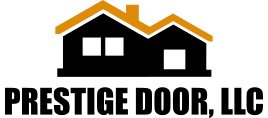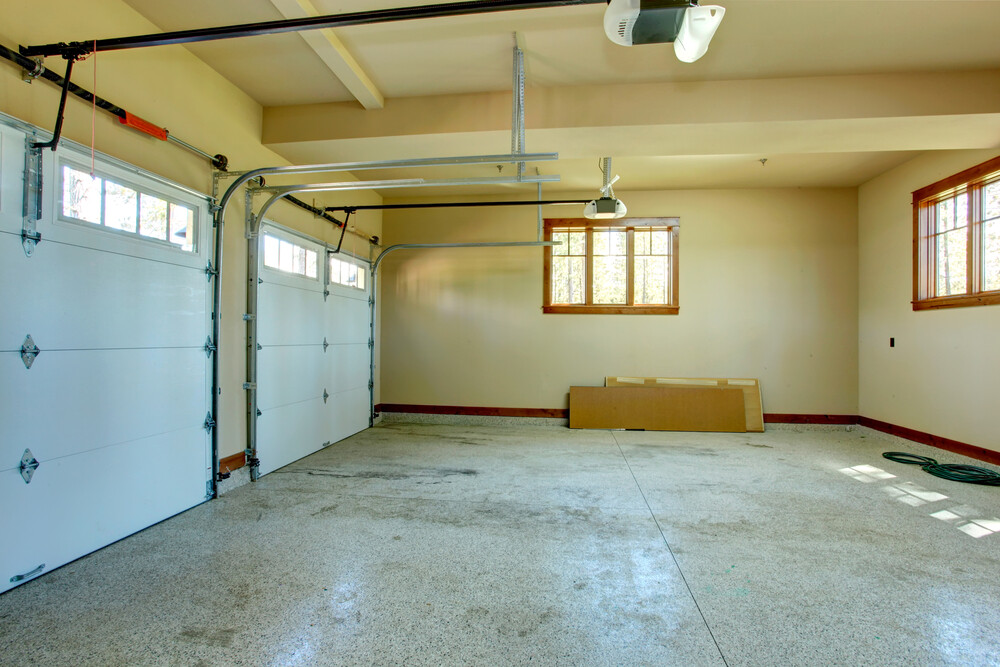Welcome to our first post focusing on DIY garage door projects. Although we caution homeowners on DIY garage door work, simply because some garage door components can be dangerous, certainly there are things you can do yourself without having to pay for an expert garage door repair professional. Obviously, conducting annual garage door maintenance is important, and something you can do yourself, but it isn’t the only thing. Conducting DIY garage door maintenance can go a long way to saving you some cold, hard cash.
There are a series of DIY projects that involve routine maintenance of the specific components that make up your garage door. The first of these components are your rollers. Without them, you would not have a smooth functioning garage door. When your rollers begin acting up, causing, noise, squeaking, or impeding the functionality of your garage door, it may be time to lube them up!
How to Prep for a Garage Door Lube Job
One of the easiest DIY garage door jobs you can do is a lubrication job. In reality, you are not lubricating the garage door itself, but instead its rollers. It is the rollers that allow for the smooth operation of your garage door. When you neglect roller maintenance, you may wind up with a noisy garage door. Certainly, no one wants that. But before you set out lubricating your garage door rollers, make sure you know what kind you have.
- Plastic: Lowest quality and generally only last a few years.
- Steel: Last the longest, around 20 years, but they can be quite noisy.
- Nylon: Quietest and also long lasting, they offer the best value and performance.
Before you begin conducting garage door maintenance of any kind, you want to make sure you have cut the power to the opener. The last thing you want is having the garage door open or close while you are working on mechanical components. Make sure you power it down and disengage the opener. Once complete, your garage door should only open and close manually.
Next, you want to make sure you have the right tools on hand. First, take note to not use WD-40. As an oil-based lubricant, WD-40 can actually do more harm than good. Instead, you should visit a hardware store and purchase a lithium- or silicone-based grease. They are specially made for the purpose and will not harm or degrade your rollers. Depending on your garage door height, you may also need a stepladder to reach the rollers. Also have a cloth handy and a tarp on your floor to protect from drips.
Applying Lubricant to Garage Door Rollers
Once you have your work area set up, you can begin your lubrication job. How you lubricate your rollers depends on the type of rollers you’re working with. Here’s a handy guide to break it down for you:
- Plastic: Apply the grease to the outside of the roller and where the roller and shaft meet.
- Steel: Apply grease to the area where the ball bearings meet the shaft.
- Nylon: For exposed ball bearings, lubricate where the bearing meets the shaft. If there are no ball bearings, apply the grease to the outside of the roller.
One important thing to note: If you use nylon rollers with sealed ball bearings, you do not have to grease them. Those types of rollers do not require specialized maintenance. Also make sure that when you are going through the process use a light touch and do not overapply the grease. Excess grease should be immediately wiped away. If you have a straw on your grease canister for more precise application – use it.
You are probably wondering at what frequency you should lubricate your garage door rollers. Well, consider doing it around twice per year. Still, if you find your garage door is rattling or making other noises, that may be a sign you want to lubricate sooner. It tall depends on the use level and conditions where you live, whether in Akron, Canton, or the surrounding areas.
But Wait, There’s More!
Since you are already working around your garage door with grease in hand, why not hit some other spots around the garage door that need might need more lubrication? After all, your rollers aren’t the only components of your garage door that require lubrication for smooth movement. You’ll want to also check your hinges. Properly lubricate any point where the hinge opens or closes. Also consider lubricating the garage door locks, arm bar, and bearing plates.
Of course, your garage door springs also need lubrication, but you are better off leaving that job to a professional. Springs are no DIY garage door Your springs are under a high amount of tension and if you make the wrong move, they could snap and cause a major injury. You also want to avoid lubricating your tracks. Doing that will cause them to quickly accumulate dust and dirt, which will cause noise and degradation problems. It could also get in the way of how the door operates.
It may very well be that you simply have worn-out rollers. If this is the case, and you want to upgrade to the Ferrari of rollers, you may want to contact Prestige Door! We can provide you with top quality garage door parts and provide a level of maintenance and repair services you can’t get just anywhere in the Northeast Ohio area.

